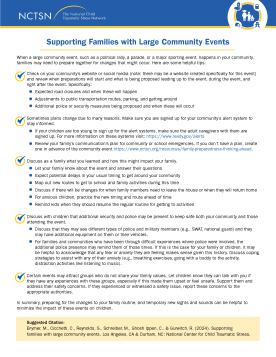
Supporting Families with Large Community Events
Provides information for parents and caregivers about how to support their family when a large community event is happening in their city or town.
The following resources on child trauma were developed by the NCTSN. To find a specific topic or resource, enter keywords in the search box, or filter by resource type, trauma type, language, or audience.

Provides information for parents and caregivers about how to support their family when a large community event is happening in their city or town.
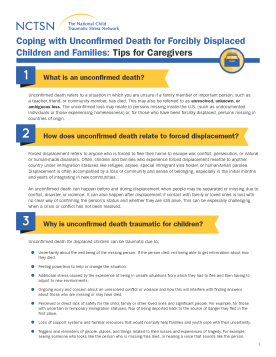
Offers information for caregivers on unconfirmed death, how it relates to forced displacement, how it is traumatic for children, and how children might respond.
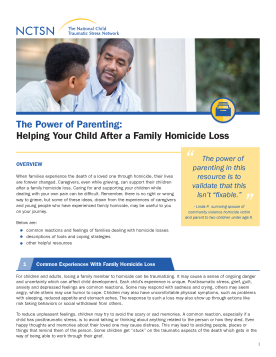
Offers parents and caregivers information to help support their children after the loss of a family member due to homicide.
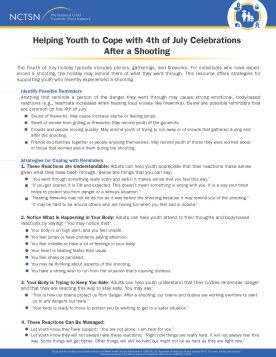
Offers strategies for supporting youth who recently experienced a shooting on how to cope with 4th of July celebrations.

Addresses how "White supremacy" culture has systematically served as the formation, foundation, and expression of institutional racism throughout U.S. history by employing institutional policies...
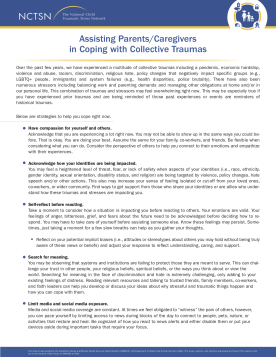
Offers strategies to help parents and caregivers cope with collective traumas. This fact sheet also provides guidance on what parents and caregivers can do to care for their children as they cope. Updated May 2024.
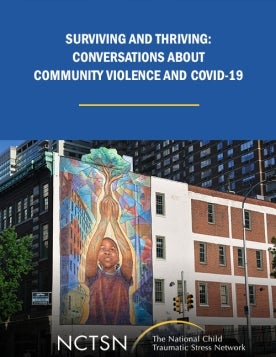
Explores how young people respond to community violence and the lasting effects of marginalization and hate-based trauma. This webinar discusses creative strategies to help youth process these challenges and build resilience.
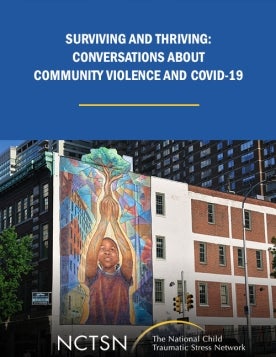
Focuses on current challenges and recommendations for addressing the needs of young immigrant children, youth and families; highlighting the importance of community partnership, early childhood protections; addressing substance use and its effects, as well as faith based supportive approaches.
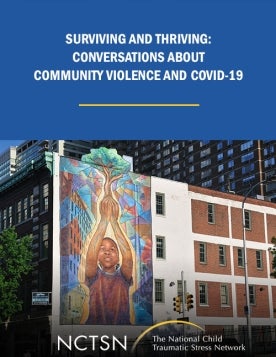
Provides perspectives on the institutional responses to the links between community violence and COVID-19 including law enforcement, juvenile justice, national disaster, and mental health systems.
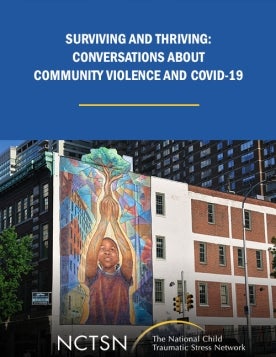
Looks at community violence, an ongoing crisis in society as many youth and families feel the destructive repercussions of peer conflicts, gun and other weapon attacks, gang fights, and public violence incidents.
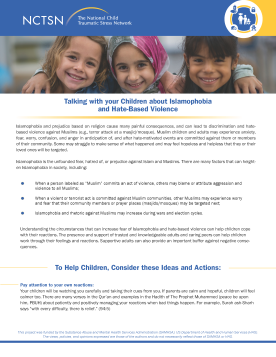
Discusses Islamophobia and hate-based violence against Muslims, highlights strategies that parents and caregivers can usd to facilitate effective conversations, offers age-specific guidelines, and provides actions families and communities can take before an event occurs.
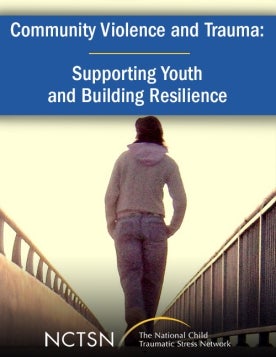
Expands the conversation to include those in rural communities who are seeing an increase in Community Violence without the benefit of a service structure, appropriate training or the necessary partnerships to provide optimal care for families.